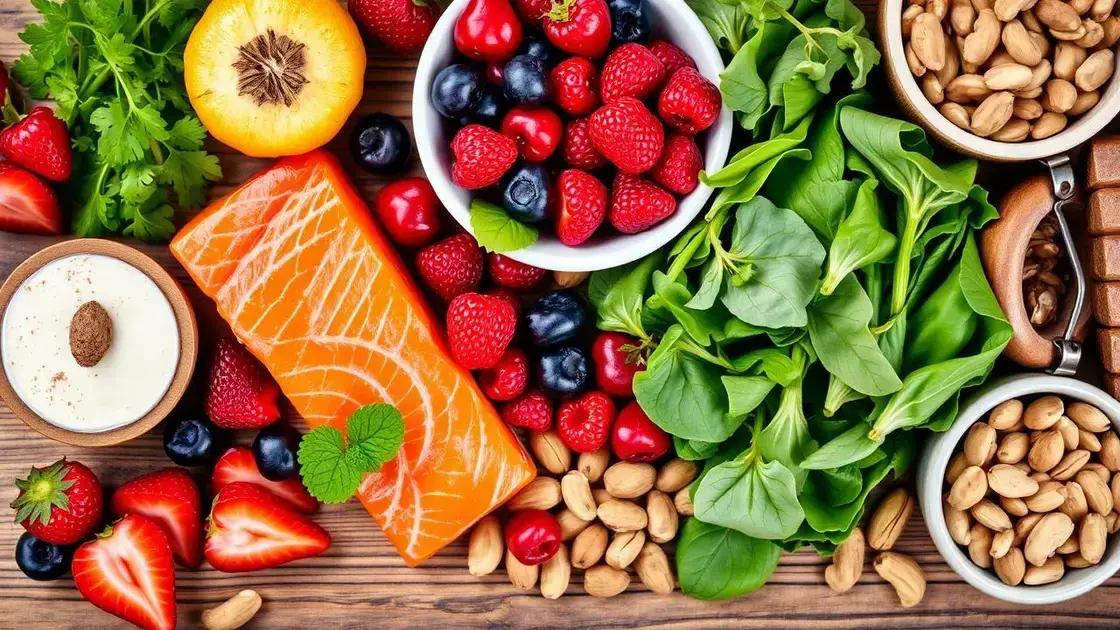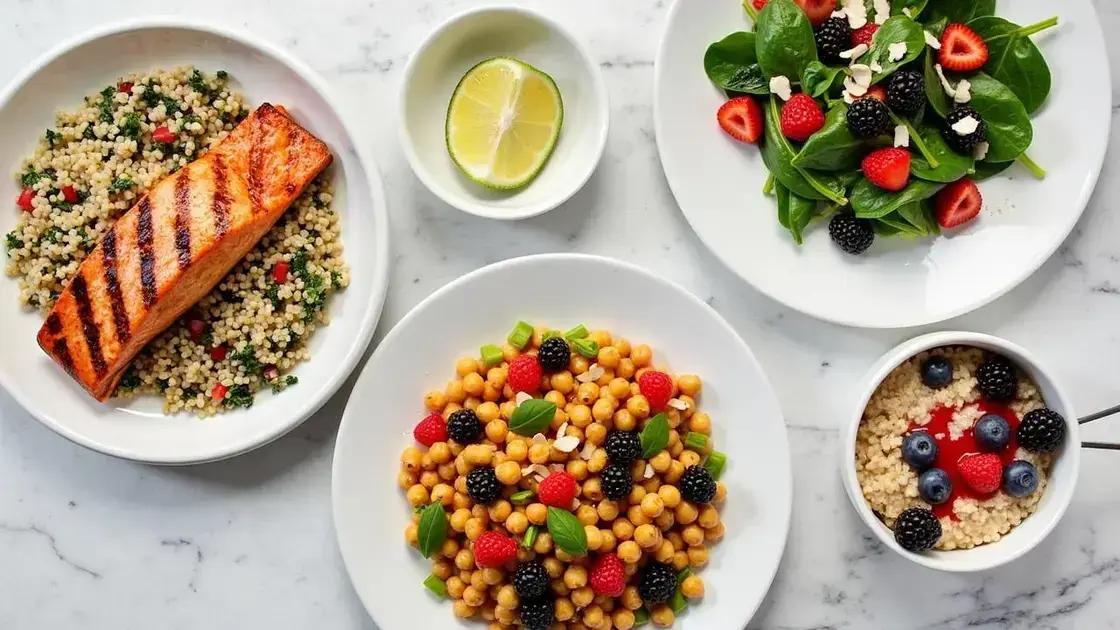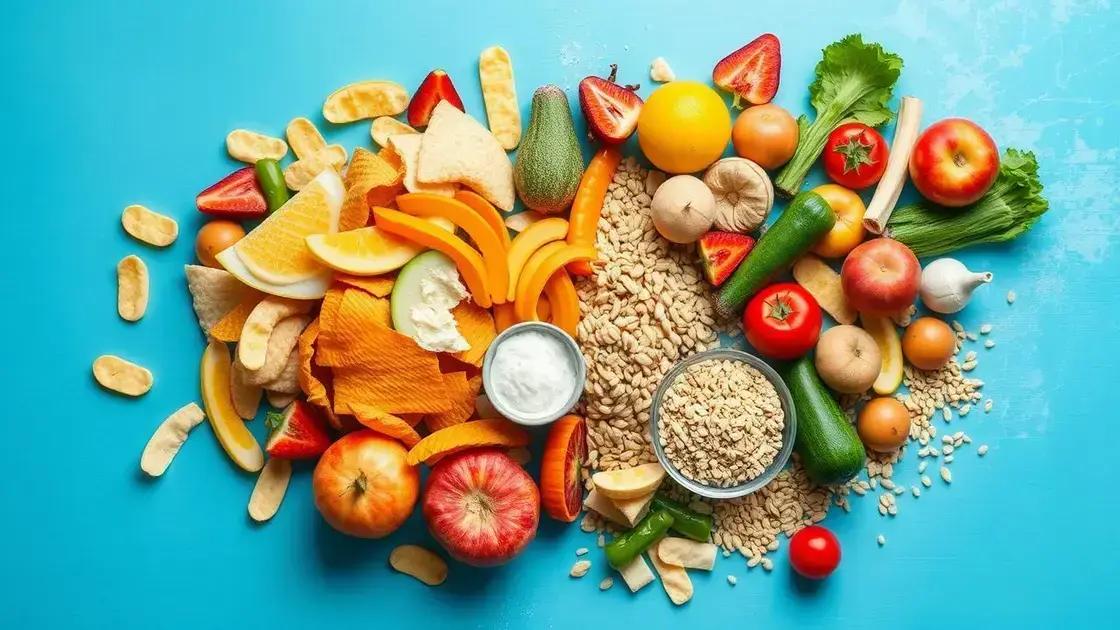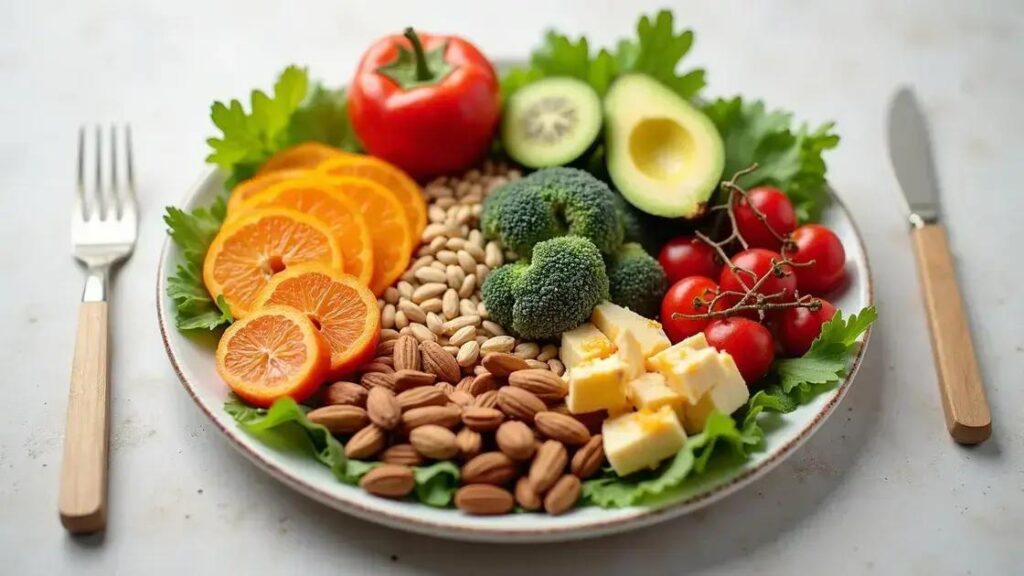The best foods for heart health in your 50s include fatty fish, whole grains, fruits, and vegetables, while avoiding processed foods, sugary beverages, and high-sodium options. Incorporating exercise, managing stress, and getting quality sleep are essential lifestyle tips to enhance cardiovascular health.
As we enter our 50s, maintaining heart health becomes increasingly important. The best foods for heart health in your 50s can significantly impact overall well-being. By incorporating nutrient-rich foods into your diet, you can support your cardiovascular system, reduce cholesterol levels, and promote longevity. In this article, we’ll delve into top nutrients essential for heart health, share delicious recipes, highlight foods to avoid, and provide valuable lifestyle tips to keep your heart in top shape.
Top Nutrients for Heart Health

Top nutrients for heart health play a vital role in maintaining cardiovascular health as you age. Incorporating these nutrients can help lower blood pressure, reduce cholesterol, and improve overall heart function.
Omega-3 Fatty Acids
Omega-3 fatty acids are essential for heart health. They can be found in fish such as salmon, mackerel, and sardines. These healthy fats help reduce inflammation and lower the risk of heart disease.
Fiber
Fiber is important for maintaining a healthy digestive system and can also help lower cholesterol levels. Whole grains, fruits, and vegetables are excellent sources of fiber. Aim for at least 25 grams of fiber per day.
Antioxidants
Antioxidants protect your cells from damage. Foods rich in antioxidants include berries, dark chocolate, and leafy greens. They help combat oxidative stress, which can lead to heart problems.
Potassium
Potassium helps regulate blood pressure levels. Foods high in potassium include bananas, oranges, and sweet potatoes. Including these in your diet can contribute to a healthier heart.
Magnesium
Magnesium is crucial for heart health as it helps maintain normal heart rhythms. You can find magnesium in nuts, seeds, whole grains, and leafy green vegetables.
By focusing on these top nutrients for heart health, you can create a heart-friendly diet that supports your well-being in your 50s and beyond.
Delicious Recipes for a Healthy Heart

Cooking delicious recipes is a great way to support heart health. Here are some heart-friendly recipes you can try:
1. Grilled Salmon with Quinoa Salad
Salmon is rich in omega-3 fatty acids. To make this dish, grill a piece of salmon and serve it over a bed of quinoa mixed with cherry tomatoes, cucumbers, and parsley. Drizzle with lemon juice and olive oil.
2. Spinach and Berry Salad
This refreshing salad combines spinach, mixed berries, walnuts, and feta cheese. Toss with a simple dressing of balsamic vinegar and olive oil. It’s packed with antioxidants and healthy fats.
3. Chickpea and Veggie Stir-Fry
Chickpeas are a great source of protein and fiber. Stir-fry chickpeas with bell peppers, broccoli, and carrots in a bit of olive oil. Add garlic and ginger for extra flavor. Serve over brown rice.
4. Oatmeal with Almonds and Berries
Start your day with a bowl of oatmeal topped with sliced almonds and fresh berries. Oats are full of fiber and can help lower cholesterol levels.
These delicious recipes for a healthy heart are easy to prepare and full of nutrients, making them perfect for anyone looking to improve their heart health.
Foods to Avoid After 50

As we age, it becomes crucial to avoid certain foods that can negatively impact heart health. Here are some foods to avoid after 50:
1. Processed Foods
Processed foods such as chips, frozen dinners, and packaged snacks are often high in unhealthy fats, sodium, and sugars. These can lead to increased blood pressure and heart disease.
2. Sugary Beverages
Sugary drinks, including soda and sweetened teas, can contribute to weight gain and increase the risk of diabetes. Opting for water, herbal teas, or unsweetened drinks is a better choice.
3. High-Sodium Foods
Foods that are high in sodium, like canned soups and deli meats, can elevate blood pressure. Reading labels and choosing low-sodium options is essential.
4. Refined Carbohydrates
Refined carbs found in white bread, pastries, and sugary cereals can lead to spikes in blood sugar levels. Instead, choose whole grains that offer more nutrients and fiber.
5. Saturated and Trans Fats
Foods high in saturated fats, such as fatty cuts of meat and full-fat dairy products, should be avoided. Additionally, trans fats, often found in fried and processed foods, are harmful to heart health.
By being mindful of these foods to avoid after 50, you can greatly reduce the risk of heart-related issues and promote overall wellness.
Lifestyle Tips for Heart Health

Incorporating healthy lifestyle changes is essential for maintaining heart health, especially as you reach your 50s. Here are some lifestyle tips for heart health:
1. Stay Active
Regular physical activity is vital for a healthy heart. Aim for at least 150 minutes of moderate exercise each week. Activities like walking, swimming, and cycling can improve heart function and reduce stress.
2. Manage Stress
High stress levels can negatively affect heart health. Techniques such as deep breathing, meditation, and yoga can help you manage stress effectively. Find what works best for you to stay relaxed.
3. Get Enough Sleep
Quality sleep is crucial for heart health. Aim for 7-9 hours of sleep per night. Establish a bedtime routine and create a comfortable sleep environment to ensure restorative rest.
4. Avoid Smoking
Smoking is a significant risk factor for heart disease. If you smoke, seek help to quit. There are many resources available, including support groups and counseling, to assist you.
5. Limit Alcohol Consumption
While moderate drinking may have some heart benefits, excessive alcohol can harm your heart. Limit intake to one drink per day for women and two drinks for men, if you choose to drink.
By following these lifestyle tips for heart health, you can promote better cardiovascular health and enhance your quality of life as you age.
In Conclusion: Embrace Heart Health in Your 50s
Maintaining heart health in your 50s is crucial for leading a vibrant and active life. By focusing on the best foods for heart health, incorporating top nutrients, and trying delicious recipes, you can significantly enhance your cardiovascular well-being.
Avoiding harmful foods and adopting healthy lifestyle tips further supports heart health. Remember, small changes can lead to significant improvements over time.
Prioritize your heart health today so that you can enjoy a healthier, happier tomorrow!
FAQ – Frequently Asked Questions About Heart Health in Your 50s
What are the best foods for heart health in your 50s?
Some of the best foods include fatty fish, whole grains, fruits, vegetables, nuts, and seeds. These foods are rich in nutrients that support cardiovascular health.
How can I incorporate more omega-3 fatty acids into my diet?
You can increase your intake of omega-3 fatty acids by eating fatty fish like salmon, mackerel, and sardines, as well as incorporating flaxseeds and walnuts into your meals.
What lifestyle changes can help improve my heart health?
Engaging in regular physical activity, managing stress, getting enough sleep, avoiding smoking, and limiting alcohol consumption are all effective lifestyle changes for better heart health.
What foods should I avoid after 50?
You should avoid processed foods, sugary beverages, high-sodium foods, refined carbohydrates, and foods high in saturated and trans fats to protect your heart health.
How often should I exercise for optimal heart health?
Aim for at least 150 minutes of moderate aerobic exercise each week, along with strength training at least twice a week to promote overall cardiovascular wellness.
Can stress negatively affect my heart health?
Yes, chronic stress can lead to high blood pressure and other heart-related issues. Incorporating stress management techniques is essential for maintaining heart health.













